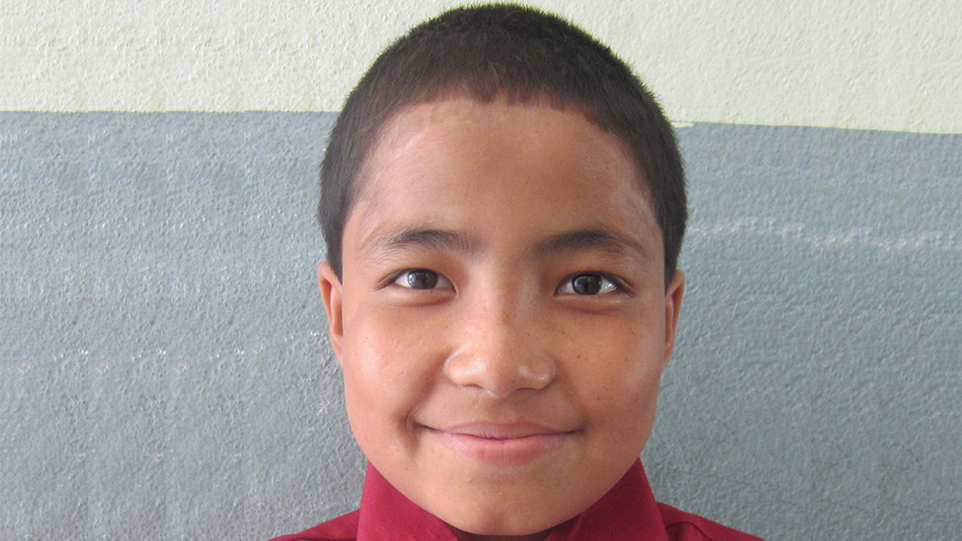Binod Didn’t Run
February 28, 2017Watching Binod as he laughs and kicks a soccer ball around with his friends in the dusty yard at Hamro Ghar, GoodWeave’s Khathmandu refuge for rescued child workers, it’s easy enough to convince yourself that you’re looking at a normal Nepalese kid at play. But while he may be busy trying to live a normal childhood, there’s nothing normal about his past.

Before he arrived at Hamro Ghar, Binod’s days weren’t filled with soccer and friends and laughter. They were spent tying knots in a rug factory—typically for 15 hours at a time. When asked, he will reluctantly share the story of his early life in short, quiet bursts of emotion-laden memory. “I felt nothing inside,” he says, looking down at his feet. “Everything was full of pain.”
Prior to his arrival at Hamro Ghar, Binod had never been to school. His was a childhood of labor—and loss. His father died of tuberculosis; his mother eventually ran off with a neighbor, abandoning her children. Binod and his siblings struggled in vain to manage on their own. “We never had enough food for everyone, or enough water to drink,” he says. “Our house was a hut with one room. When it rained outside, it rained inside too.”
The children were forced to split up. A brother went to a factory; Binod was sent away to live with his cousin. When a neighbor offered to pay for a bus ticket to Kathmandu, Binod briefly allowed himself to hope that he was headed to greater opportunity and a better life. Instead he found himself, at age nine, sitting at a loom in a rug factory.
“There was so much pressure—the designs were so hard to learn,” he recalls. “Tying so many knots all day hurt so bad. We had to wash the blood off the rugs.” Bleeding fingers, lack of sleep, beatings, and endless work: That was Binod’s new life. Sadly, it’s also the story of millions of other children who are forced to work when they should be studying, playing, and growing up with compassionate caregivers to look after them.
One day a GoodWeave inspector made a surprise visit to the factory where Binod worked. “The boss said to run,” he remembers, “but I didn’t run. I stayed, so they could save me and get me out.”
He hasn’t forgotten his previous life, he says, and he never will. But the amazing recuperative abilities of children are well documented—and the power of loving attention, good nutrition, and educational support of the sort that he now receives can’t be underestimated. The brave little boy who dared to stand his ground when ordered to run from the inspector who would free him now dreams of becoming a doctor, and has this to say to any other children who might find themselves trapped inside the prison of forced labor: “Run away, if you can, to a school. Study and learn. It’s the only way to a happier life.”
